Blog Archive: 2021
2021

Alec Weiker
December 2, 2021
By Alec Weiker
Throughout Jewish history, pictures and graphic representations have been fundamental to how people shared and told their stories. However, much like the men creating them, these pieces of art, especially biblical art, were often entrenched in a misogynistic worldview. Women were dressed — and undressed — in ways that were entirely decided by men.

Alec Weiker
October 29, 2021
By Alec Weiker
How do we cope with that which we cannot understand? How can we manage when someone we know or love stops acting the way that we hope they would? Why do we desire to rationalize the manner in which our queer family or friends live their lives? I didn't expect to encounter such questions this past summer while researching the phenomenon of the dybbuk in the Hasidic world, but they arose nonetheless.
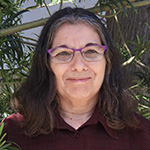
Orly Nathan
October 19, 2021
By Orly Nathan
I am the Elaine Reuben ‘63 HBI Jewish Feminism Collections Scholar in Residence at HBI this semester and my research is focused on the Marcia Freedman archive in the Brandeis University Jewish Feminism Collections, one of the two sites to which Freedman bequeathed her private collections. The archive ranges from the start of her activity in Israel until the 2000s. Freedman's papers are also held at the Feminist Archive at the Research Center of "Woman to Woman" organization (Isha l’Isha) where she was one of the founding mothers.
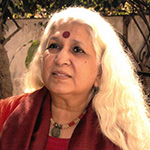
Esther David
September 13, 2021
By Esther David
When my book, "Bene Appetit — Cuisine of Indian Jews," was published by HarperCollins, readers wanted to know why I decided to write it. My answer is very simple. There are 5,000 Jews in India, down from about 30,000 at the peak in the mid-1950s and 1960s. When a community decreases in numbers, its traditional food starts to disappear. With this book, I have tried to preserve the heritage of Indian Jewish cuisine because food is memory and culture. Food is connected with the bonding of families and communities.
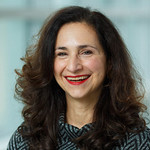
Lisa Joffe
September 1, 2021
By Lisa Fishbayn Joffe
This week, we begin another year of new and unexpected challenges. While we may be disappointed that we again need to adapt our plans to the exigencies of COVID-19, there is no denying the exhilaration many of us feel to be back on campus in person and together virtually through our many new online forums.

Alec Weiker
August 5, 2021
By Alec Weiker
What if we are missing whole aspects of Yiddish-Jewish life because we are not looking in the right place? What if the exclusion of certain Yiddish-Jewish narratives served to exclude those who may have been there all along? These are some of the questions that Zohar Weiman-Kelman (who goes by they/them and she/her pronouns) is asking. They are part of a group of academics challenging the way that Yiddish is characterized and studied in the modern Jewish world.
July 12, 2021
Every summer, HBI welcomes interns from across the country and world who complete original research related to the HBI mission of fresh thinking about Jews and gender worldwide and support the work of scholars affiliated with HBI and Brandeis. During the eight-week program, the interns also attend educational lunch sessions with scholars, visit Jewish sites of interest in the Greater Boston area including Mayyim Hayyim, and a walking tour of Jewish Boston. The Gilda Slifka HBI Summer Internship is supported by a generous gift from Gilda Slifka.
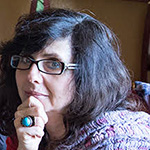
Joanna Michlic
June 23, 2021
By Joanna Beata Michlic
In similar fashion to the Bickels family described in last week’s Part 3, Jack Skovronsky, the son of Eliyahu Skovronsky (Skowroński), today hopes to recover traces of the whereabouts of Mira (Mirka) Monet born in 1938. Before the outbreak of the Second World War, Mira's parents David Monet, born Oct. 14, 1910, and Mindla Monet, born in 1906 (or 1908?) née Skowrońska, lived at no. 26 Nowomiejska Street in the central neighborhood of the prewar multicultural and multi-ethnic city of Łódź. Most likely Mira was born there.

Joanna Michlic
June 16, 202
By Joanna Beata Michlic
In some cases, searches for missing child survivors have been continuing until the present by members of the second generation, cousins and nephews, who could only cling to fragmentary evidence and hope against hope that the lost child survivors in their families could be identified and found. Ori Bickels, born in a small green Polish town Tuchola in 1953, emigrated to Israel with his parents in 1957. Ori's father, Józef Bickels was born into a highly acculturated and educated Polish-Jewish family and had two siblings Wiktor and Samuel.

Joanna Michlic
June 9, 2021
By Joanna Beata Michlic
The late Romualda Mansfel-Boot, born at the end of 1939 as Esther Goldynsztajn (Goldstein) learned only in 1989 as a mature woman that her biological mother Helena Goldynsztajn (née Bohm) (1919-77) searched for her in vain through towns and villages in Volhyn, (today, Ukraine) for almost two years at the end of the Second World War. In great anguish, Helena explored all possible options in search for her daughter. She was even hired as a nurse in one of the hospitals in the post-1945 Volhyn region, hoping that she would come across her daughter on a children's ward.

Joanna Michlic
June 9, 2021
By Joanna Beata Michlic
In her poem titled, "About My Father," Irena Klepfisz, a poetess and Polish-Jewish child survivor, pays a tribute to her father Michal Klepfisz. The father with whom she shared the same birthday, April 17, was a vital person in her rescue from the Warsaw ghetto: "He left me on the street to be picked up by the nuns from an orphanage. He watched me from a distant doorway."
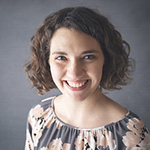
Sari Fein
May 7, 2021
By Sari Fein
While the modern observance of Mother's Day almost universally presents a one-dimensional version of what it means to be a mother, the biblical construction of motherhood shows much more diverse constructions. You certainly won't find anything in the Bible quite like the greeting cards that declare, "When a mother says 'I love you,' she means 'I'll do anything for you,' " and "Moms do it all, and they do it with ease," but you will find complex, nuanced versions of motherhood that resonate with us today.
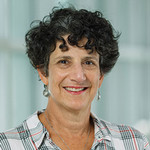
Amy Powell
April 16, 2021
By Amy Powell
The Hadassah-Brandeis Institute will host "Pressing Feminist Agendas: New Reports from the Field" to launch the latest issue of "Nashim: A Journal of Jewish Women’s Studies and Gender Issues," at a virtual conference on Wednesday, May 12. The conference will feature short talks from several of the issue’s authors and artists.
March 26, 2021
By Wendy Amsellem and Mike Moskowitz
On Passover, the Israelites don't just demand better conditions for their servitude. Instead, they emerge as free people, heads held high, bedecked with the finery of their oppressors, as they sing their way to liberation. On Passover, there are no compromises. Moses demands (Exodus 10:9) that not a single Israelite, neither young nor old, neither female nor male, be left behind.
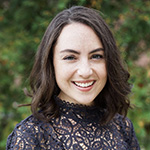
Hana Green
March 19, 2021
By Gavi Klein
Most known stories about Jews hiding during the Holocaust focus on the physical act of hiding. Hana Green, 2019 Hadassah-Brandeis Institute Research Award recipient, finds the narratives of non-physical hiding an equally important and largely unaddressed issue.
By Aliyah Blattner
I remember reading midrash as a child at my Schechter day school. While we explored the stories of the Tanakh through the eyes and words of the rabbis, my teachers emphasized the power of midrash as a testament to the dynamic, ever-evolving nature of the Jewish tradition. If the foundations of our culture were built upon centuries of thoughtful debate and discussion, then anyone could find meaning and personal power in the sacred texts we studied, even us as modern, American children.
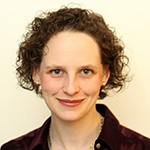
Shanna Giora-Gorfajn
February 24, 2021
By Shanna T. Giora-Gorfajn
Over the past 50 years, laws across the U.S. have evolved to recognize that a person should not be forced to remain in a marriage that is irretrievably broken. But as women in particular have made progress with no-fault divorce and financial independence, religious law has ironically — though perhaps unsurprisingly — gained traction as a way for men to assert power over their would-be ex-wives.

Lisa Joffe
February 3, 2021
By Lisa Fishbayn Joffe
The new spring term begins here at Brandeis this week. While we are still in a virtual world, we continue to offer a full roster of programs. This semester, I am looking forward to teaching Jewish Feminisms to a new generation of students who are passionate about Jewish women’s and gender studies. Our expanded online offerings to the public will run through the spring with a full roster of events that include explorations of gender, race and Israeli.